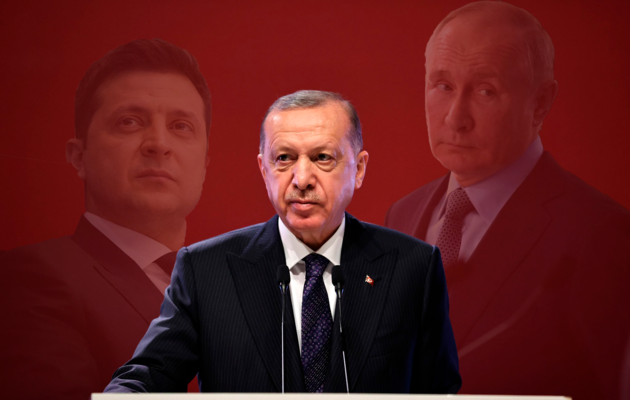The Speaker of the Turkish Parliament, Mustafa Şentop, announced today the nomination of Turkish President Recep Tayyip Erdogan for the Nobel Peace Prize for his efforts to resolve the “crisis in Ukraine”. The news is being actively discussed today and there is much to say about it.
Erdogan does have merits that can be considered peacemaking, albeit with reservations. The freezing of intense military conflicts in Syria, Libya and Karabakh can be recognized as such in our view. However, in acknowledging this, we understand that there will be many who will be outraged by this perspective, considering that Turkey or its allies can be accused of freezing wars that they themselves started. We respond by saying that this is the nature of real-world politics, where peace is often achieved through the use of force. But we also understand that the Nobel Prize is more about ethical politics than real politics, so even these three cases are unlikely to qualify as peacemaking by its standards.
It should also be noted that many of the achievements of Recep Tayyip Erdogan’s rule are undeniable to us, and in this regard we would like to recall that before we began criticizing his course in 2016, some opponents even called our resource “Erdogan’s Voice.” Nevertheless, Erdogan has had clear geopolitical successes that we appreciate. For example, the Turkish drones that disrupted the Russian-Assad “SAF” in Idlib, the defeat of Haftar’s offensive in Libya, forcing him to abandon his intentions to take control of the entire country, and the successful support of Azerbaijan in the 44-day war that ended with a spectacular peace agreement and the achievement of many goals through diplomatic means.
However, what is important to understand in the context of the topic under discussion is that there are basically two approaches to evaluate the actions of politicians today – the Western and the Eastern; Western because the Western approach has long been in demand in many Eastern countries such as South Korea, Singapore, Malaysia, Japan, Mongolia, and Eastern because the Eastern approach sometimes manifests itself in Western countries. Turkey is often seen as a country that combines both Western and Eastern characteristics, so it is interesting to reflect on how this manifests itself in the country.
So, the Western approach means that a particular leader is evaluated based on his or her usefulness to a project. The conditional Eastern approach means that the leader, sometimes thanks to his achievements, becomes a criterion for success, and loyalty to him becomes the project. Unfortunately, there is a danger that this type of thinking will become more widespread in Turkey, as it is difficult to evaluate Shentop’s mentioned initiative… After all, he could have said that he was nominating Erdogan for the Nobel Peace Prize for his mediation efforts in concluding a grain deal that saved many countries from hunger. Or for freeing the Azovians from captivity, which we also appreciate. But for “efforts to resolve the crisis in Ukraine”? I’m sorry, but the “crisis in Ukraine” is still ongoing, which means that Erdogan’s efforts, for which Shentop nominated him for the Nobel Prize, have not led to success. Yes, it can be argued that it is not his fault and that he tried. Perhaps, but unsuccessful attempts do not receive such awards – only achieved results do.
Overall, this note is not so much about the Nobel Prize, as Recep Tayyip Erdogan will somehow live without it and may even remain in Turkish history as an outstanding statesman and the creator of a second, post-Kemalist republic, which he will leave as a legacy to his successors. Unfortunately, however, this will not be possible if an Eastern type of political thinking, which Shentop demonstrates in this case and which is often demonstrated by other AKP members, prevails in his circle and among his supporters. In other words, we must be able to soberly evaluate both our successes and failures.
Otherwise, the former can turn into the latter, and then no awards can save the policy.

